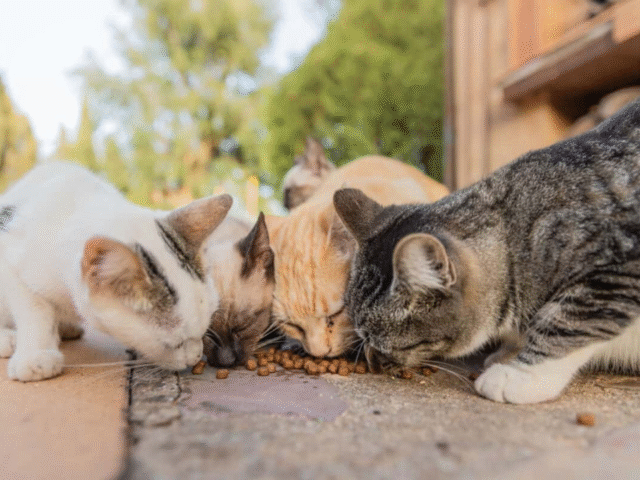
Stray animals in Malaysia already face an uphill battle for survival. They search for scavenged food, enduring harsh weather, and often being mistreated. But now, they’re facing yet another obstacle: a warning from local authorities about caring for strays. A signboard reading “Feeding strays is forbidden”, reportedly issued by the Penang Island City Council (MBPP), has gone viral on social media. This has sparked an outrage among animal lovers nationwide.
Public Outcry Over “Do Not Feed Strays” Sign
The sign warns that anyone caught feeding stray animals could face a RM500 fine, citing Section 47(1)(g) of the Street, Drainage, and Building Act 1974. While the details remain unclear, it has ignited anger, with many questioning the lack of compassion shown towards the strays.
Why The Ban Exists

According to the sign, the rule aims to address issues such as dirty surroundings, stray overpopulation, and disturbances. Authorities argue that feeding strays alters their natural instincts to search for food and can attract wild animals. This might pose hygiene and safety risks.
Local councils have long maintained similar restrictions. Not only against feeding cats and dogs, but also pigeons and monkeys. In early October, nine individuals were fined RM250 each in Penang for feeding pigeons despite repeated warnings.
This Isn’t New
This isn’t the first time Malaysians have reacted strongly to such rulings. Back in 2021, the Shah Alam City Council (MBSA) faced backlash over a banner forbidding the feeding of wild animals, which controversially featured images of cats and dogs. After heavy criticism, MBSA clarified that the rule aimed to control stray overpopulation and minimise environmental and health issues.
Animal welfare organisations like the Malaysian National Animal Welfare Foundation (MNAWF) and environmental NGO EcoKnights have previously commented that such measures, while unpopular, may stem from legitimate public health and safety concerns.
Striking A Balance Between Compassion And Control
The debate over feeding strays highlights a deeper challenge, balancing empathy with sustainability. While feeding strays is an act of kindness, experts warn that doing so without addressing sterilisation or proper waste management could worsen the problem.
EcoKnights vice-president Amlir Ayat once noted that “being ‘nice’ to animals in the wrong way” can backfire, leading to overpopulation, property damage, and even accidents involving wildlife and humans.
Yet, for many Malaysians, the sight of a hungry stray evokes a moral responsibility to help. The viral MBPP sign has become more than just a notice but a symbol of the ongoing struggle to find humane, effective solutions for Malaysia’s stray animal crisis.










